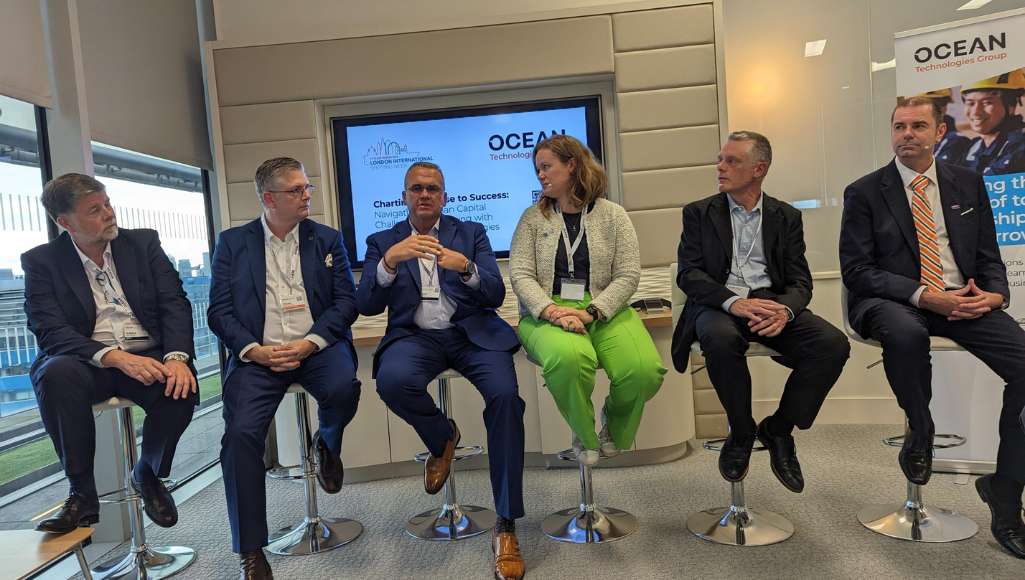
Insights from London International Shipping Week
By Ronald Spithout, Managing Director of OneHealth by VIKAND
London International Shipping Week (LISW) is quite different from other large shipping exhibitions. Instead of happening in one large space, it consists of hundreds of events, discussions and roundtables spread across the city, giving stakeholders an opportunity to connect on a range of critical topics.
This year’s LISW was excellent, as always. Reflecting on my time there, a few recurring themes stand out: human sustainability, crew diversity, and improving crew care as a key part of risk management.
There was great energy at the Ocean Technologies panel led by Peter Schellenberg. A sizable crowd was deeply engaged on the topic of human sustainability, and rather than vague aspirations, the discussion focused on tangible efforts in the here and now. Crew diversity was another key conversation – specifically, how to make crews at least 26% women by 2050. (They’re currently 2%.) Much needs to happen with respect to onboard working conditions and seafarer rights in order to attract women.
Another observation: Some people still romanticise 1980s-era seafaring, where they could focus on work without “distractions” like the internet and cell phones. For me, it’s another reminder that shipping needs to catch up to cruising and superyachts in terms of diversity and modernisation.
At the Safety4Sea event, while debating human factors in a world of change, I realised that safety and health are two sides of the same coin. Quite a few P&I Club representatives I spoke with were aligned with this and receptive to the idea of reducing crew safety risks through proactive health management.
If you’re interested in reading more on these topics, Lloyd's Register and The Economist teamed up to create an in-depth report defining industry challenges between now and 2050, including technology, port development, fuel management, investment choices, crew requirements, diversity and more.
For the shipping industry, long-term sustainability depends on whether we can make seafaring jobs safer, healthier and more welcoming of diverse workers over the next 25 years. Otherwise, there may simply not be enough people willing to do these jobs.
In this edition of Pulse, learn about VIKAND’s new partnership with TUI Cruises and the benefits of sourcing medical equipment from VIKAND. You can also read about Marc Brice, one of our Biomedical Equipment Technicians, catch up on our latest news and events, and more.


